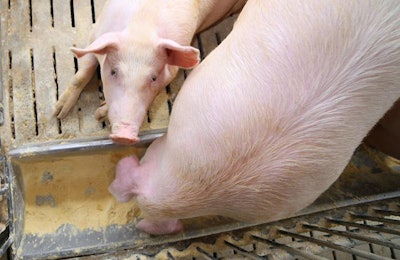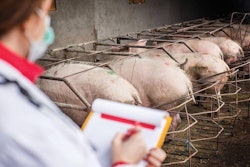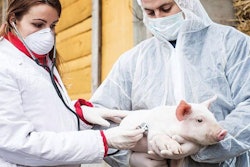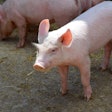
In China, African swine fever was detected in pigs in Hebei province, and there have been further mortalities in Indonesia.
First cases of African swine fever (ASF) have occurred in the Malaysian state of Perak, according to an official report to the World Organisation for Animal Health (OIE). Confirmed in early November, the outbreaks — four so far — are the first on Peninsular Malaysia (Western Malaysia).
At each of four locations in the same Batang Padang district, the decomposing carcasses of long-dead wild pigs tested positive for the ASF virus in the period between October 28 and December 1. Authorities report that epidemiological investigations are ongoing to identify the source of the infections in Perak.
In February, first cases of ASF were detected in the state of Sabah, which is in Eastern Malaysia on the island of Borneo. Based on official reports to the OIE, a total of 52 outbreaks have occurred in a number of districts in Sabah so far this year. Directly impacted have been 1,419 domestic pigs as well as 72 wild animals.
Just last week, The Star reported that ASF virus had been detected in the State of Malacca (Melaka). Positive tests for the infection have been obtained from samples taken from seven farms in this southern state of the Malaysia peninsula. Scheduled for culling are around 6,000 animals at the infected farms.
While pigs at the affected farms have been destroyed, local veterinary services have taken measures to control the spread of infection. Movements of pigs in the area have been restricted, with only infection-free animals allowed to travel to an authorized slaughterhouse. There is a ban on the sale of Malaccan pigs or pork outside the state. Pig farmers are being urged not to feed food scraps to their animals, and to dispose of any dead animals properly.
Restrictions are applied to an estimated 40,000 pigs on 35 farms in the immediate area around the latest outbreaks.
According to local media, ASF is also suspected in an unreported number of wild pigs in Pahang state, which is also located in Western Malaysia.
Infected pigs identified at Chinese highway checkpoint
On December 12, some of the pigs checked at a highway checkpoint in China’s Hebei province tested positive for the ASF virus.
According to the official report to the OIE, nine of the 245 animals in the vehicle died. Subsequently, the rest of them were culled. Carried out in the Qinhuangdao city region, the inspection found the movement of these animals to be legal.
These latest cases bring to 15 the number of ASF outbreaks in China so far this year, based on information supplied to the OIE.
Further pig deaths reported in Indonesia
In the province of West Kalimantan, pig mortalities have almost reached 3,000, according to the United Nations’ Food and Agriculture Organization (FAO).
The country’s agriculture ministry reported the first ASF outbreak in North Sumatra province in 2019. Since then, the disease has spread to 10 of the nation’s 34 provinces. Among others to be affected have been domestic pigs in West Kalimantan, Central Kalimantan and Eastern Kalimantan.
Further ASF cases in South Korean wild boar
The number of wild boar testing positive for the ASF virus has risen to 1,840, according to the FAO (as of December 23).
Since ASF was first detected in the country’s wild population in September 2019, the great majority of cases have been found in the northern provinces of Gyeonggi and Gangwon. More recently, cases have also been identified in two counties in North Chungcheong province.
Over the same period, ASF has been detected in domestic pigs at 21 South Korea farms. Most recent cases were in October.
ASF situation in Russian Far East, Urals
Over the past two weeks, authorities from three regions in the east of Russia have sent reports to the OIE, confirming no new ASF cases.
In the Amur region of the Far Eastern federal district, 50 outbreaks have been registered with the OIE since early July. These involved just over 3,300 pigs, and 31 wild boar.
Meanwhile, in the Urals federal district, six outbreaks have occurred in backyard pig herds in the Sverdlovsk region, and three in Chelyabinsk since September. Affected so far have been around 980 and 730 pigs in each region, respectively.
Taiwan detects ASF virus in imported sausages
Last week, a pack of sausages tested positive for the ASF virus in Taiwan, reported Focus Taiwan. Identified as suspicious by the postal service, the package had been sent from Thailand. It will be returned to that country.
This is the first time that pork products from Thailand had tested positive for ASF in Taiwan, according to the authorities. On two previous occasions, ASF-infected pork was picked up in the luggage of Thai travelers. However, the source of the meat could not be definitively identified.
So far, Taiwan’s pig population has remained free of ASF.
View our continuing coverage of the global African swine fever situation.
















